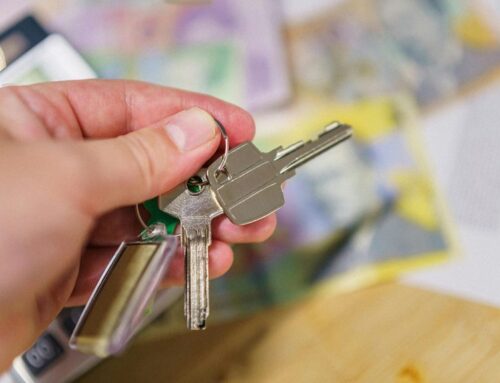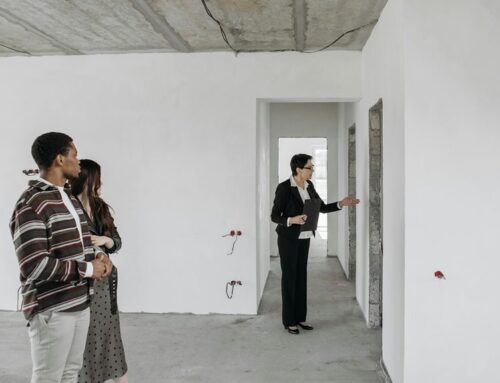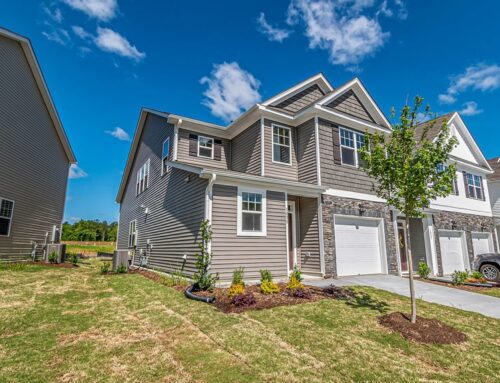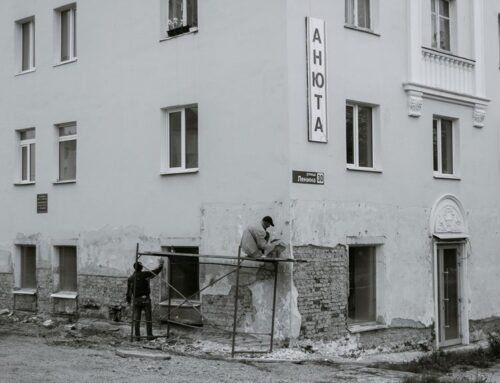When considering financing a foreclosed property, exploring alternatives such as traditional mortgages, FHA loans, VA loans, USDA loans, hard money loans, home equity loans, seller financing, and crowdfunding platforms can assist in finding the suitable match for your situation. These pathways offer different advantages such as minimal down payments, competitive interest rates, and flexibility in terms. Every option addresses distinct requirements and eligibility criteria, guaranteeing that you can investigate various routes to obtain the required funds for your investment. Understanding these options is crucial in choosing the most suitable one that aligns with your financial objectives and circumstances.
Traditional Mortgages
When considering financing options for a foreclosed property, traditional mortgages remain a popular choice. These mortgages, offered by banks and credit unions, are a familiar and straightforward way to finance a home purchase. With traditional mortgages, you can typically secure competitive interest rates and terms based on your creditworthiness and the property’s condition.
However, it’s crucial to have a good credit score and a healthy financial profile to qualify for these loans. Lenders will also require a down payment, usually around 20% of the home’s purchase price.
While traditional mortgages offer stability and predictability in payments, they may have stricter eligibility requirements compared to other financing options. Be sure to shop around and compare offers to find the best traditional mortgage for your foreclosed property purchase.
FHA Loans
Let’s talk about FHA loans for financing a foreclosed property. We’ll cover the basics of FHA loans, the eligibility requirements you need to meet, and the pros and cons associated with this type of financing. Let’s break it down together!
FHA Loan Basics
Considering financing for a foreclosed property? FHA loans could be a viable option for you. These loans, insured by the Federal Housing Administration, offer benefits such as low down payments, competitive interest rates, and lenient credit requirements.
With an FHA loan, you may be able to finance up to 96.5% of the purchase price of the foreclosed property, making it an attractive choice for many buyers. Keep in mind that FHA loans are available for primary residences only, so you must intend to live in the property you purchase.
Additionally, you’ll need to pay mortgage insurance premiums, both upfront and annually, to protect the lender in case you default on the loan.
Eligibility Requirements
Exploring eligibility requirements for FHA loans is crucial when considering financing a foreclosed property. Here are some key points to keep in mind:
- Credit Score: FHA loans typically require a minimum credit score of 580.
- Debt-to-Income Ratio: Your total monthly debts shouldn’t exceed 50% of your gross monthly income.
- Down Payment: A minimum down payment of 3.5% is required for FHA loans.
- Residency: You must intend to use the property as your primary residence.
These criteria play an important role in determining your eligibility for an FHA loan to finance the purchase of a foreclosed property. Be sure to review them thoroughly before proceeding with your financing plans.
Pros and Cons
When contemplating the decision to finance a foreclosed property, it’s important to evaluate the advantages and disadvantages of utilizing FHA loans.
One significant advantage of FHA loans is the low down payment requirement, typically as low as 3.5% of the purchase price. This can make it easier for buyers to qualify for financing, especially if they’ve limited funds available.
Additionally, FHA loans often have more flexible credit score requirements compared to conventional loans, making them accessible to a broader range of buyers.
However, it’s crucial to keep in mind that FHA loans come with mortgage insurance premiums that can increase the overall cost of the loan. Additionally, there may be limits on the loan amount, which could impact your ability to purchase higher-priced properties.
VA Loans
Let’s talk about VA Loans for financing a foreclosed property. I’ll cover VA Loan Eligibility, the Benefits of VA Loans, and walk you through the VA Loan Process. These essential points will help you understand how VA Loans can be a great option for purchasing a foreclosed property.
VA Loan Eligibility
Securing a VA loan for financing a foreclosed property is a viable option for eligible veterans, active-duty service members, and certain military spouses. To determine if you meet the eligibility criteria for a VA loan, consider the following:
- VA Loan Service Requirements: Check if you meet the minimum service prerequisites set by the VA.
- Certificate of Eligibility (COE): Obtain your COE through the VA to demonstrate your eligibility for the loan.
- Credit Score: Confirm your credit score meets the VA lender’s requirements.
- Debt-to-Income Ratio: Assess your debt-to-income ratio to see if you qualify for the loan amount you need.
VA Loan Benefits
To maximize the advantages of a VA loan, grasping the array of benefits that come with this type of financing is vital. VA loans offer several perks that can make purchasing a foreclosed property more affordable and accessible for eligible veterans and service members. Here is a breakdown of some key benefits:
| Benefits | Description |
|---|---|
| No down payment | VA loans often do not necessitate a down payment, enabling borrowers to acquire a property with no upfront cost. |
| Lower interest rates | VA loans typically provide lower interest rates compared to conventional loans, resulting in financial savings for borrowers over time. |
| No private mortgage insurance (PMI) | VA loans eliminate the need for PMI, leading to significant cost savings for borrowers. |
VA Loan Process
Wondering how the VA loan process can help you obtain financing for a foreclosed property? Here’s a quick rundown to guide you through the steps:
- Eligibility Check: Confirm you meet the VA’s service requirements and obtain your Certificate of Eligibility.
- Find a Lender: Seek out a VA-approved lender who can assist you in the loan application process.
- Loan Application: Complete the necessary paperwork and provide documentation for the lender to review.
- VA Appraisal and Closing: The property will undergo a VA appraisal to determine its value, and once approved, you can proceed to closing.
With the VA loan process, financing your dream of owning a foreclosed property can become a reality.
USDA Loans
When considering financing options for a foreclosed property, USDA loans can be a valuable resource. These loans, offered by the United States Department of Agriculture, are designed to help individuals in rural areas purchase homes with little to no down payment.
One of the significant advantages of USDA loans is that they often come with lower interest rates compared to conventional loans, saving you money in the long run. Additionally, USDA loans don’t require private mortgage insurance (PMI), further reducing your monthly payments.
To qualify for a USDA loan, you must meet certain income requirements and the property must be located in a designated rural area. If you meet these criteria, a USDA loan could be an excellent option for financing a foreclosed property.
Hard Money Loans
Considering alternative financing options for a foreclosed property? Hard Money Loans might be the solution for you. These loans are typically provided by private investors or companies and are based on the value of the property you’re purchasing.
- Quick approval process
- Flexible terms and conditions
- Ideal for short-term investments
- Higher interest rates compared to traditional loans
Hard Money Loans can be a great option if you need fast financing for a foreclosed property but be prepared for higher interest rates and shorter repayment periods.
Make sure to carefully weigh the pros and cons before deciding if this type of loan is the right fit for your situation.
Home Equity Loans
A Home Equity Loan allows you to borrow money using the equity in your home as collateral. This type of loan can be a good option for financing the purchase of a foreclosed property if you have significant equity built up in your current home. By leveraging your home’s equity, you can access funds at potentially lower interest rates compared to other types of loans.
Here is a breakdown of the key points to keep in mind when thinking about using a Home Equity Loan for financing a foreclosed property:
| Pros | Cons | Key Points to Ponder |
|---|---|---|
| Lower interest rates | Risk of losing your home | Ensure affordability |
| Potential tax benefits | Additional fees and costs | Understand repayment terms |
| Flexible repayment terms | Reduced equity in your home | Evaluate your financial situation |
Seller Financing
Exploring another avenue for financing a foreclosed property leads us to the option of Seller Financing. This method involves the current owner acting as the lender, offering financing to the buyer. Here are some key points to take into account when looking into Seller Financing:
- Flexible Terms: Negotiate terms directly with the seller, potentially leading to more adaptable payment structures.
- No Bank Involvement: Bypass traditional lenders, simplifying the process and potentially avoiding strict bank requirements.
- Personal Connection: Build a relationship with the seller, potentially leading to smoother negotiations and a more personalized experience.
- Creative Financing Options: Explore unique financing options that may not be accessible through traditional lenders.
Crowdfunding Platforms
Looking to invest in real estate but lacking the capital to do so independently? Crowdfunding platforms could be the solution for you. These platforms allow individuals to pool their resources together to invest in real estate properties, including foreclosed properties. By contributing a smaller amount of money, you can become a part-owner of a property alongside other investors.
Crowdfunding platforms provide an opportunity to diversify your real estate portfolio without the need for a large upfront investment. Additionally, they offer a hands-off approach to investing, as the platform manages the property on behalf of the investors.
Before jumping in, make sure to research different crowdfunding platforms to find one that aligns with your investment goals and risk tolerance.
Conclusion
To sum up, buying a foreclosed property can be a great investment opportunity, but it’s important to explore all your financing options. From traditional mortgages to creative solutions like seller financing and crowdfunding platforms, there are plenty of ways to make your dream of owning a foreclosure a reality. Just remember, when it comes to financing, don’t put all your eggs in one basket. Diversify your options like a smart investor planting different seeds in a garden.
“Meet the team that’s dedicated to making home sales simple. About Us today.”
Explore Our Story











